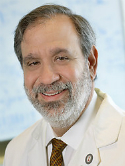| Abstract: |
BACKGROUND Stem cell transplant (SCT)-related outcomes and prognostication for relapsed/refractory follicular lymphoma (FL) are not well-defined in the post-rituximab era. METHODS Through the National Comprehensive Cancer Network (NCCN) lymphoma outcomes study, 184 patients with relapsed/refractory FL who underwent autologous SCT (autoSCT) or allogenic SCT (alloSCT) following disease relapse after prior rituximab-based therapy were examined. RESULTS Patients who underwent autoSCT (N = 136) were older compared with patients who underwent alloSCT (N = 48) (54 versus 51 years, respectively, P =.01) and more frequently had grade 3 FL (35% versus 8%, respectively, P =.006). Patients who underwent alloSCT received more prior therapies (4 versus 3, respectively, P <.0001) and more often had resistant disease at SCT (19% versus 6%, respectively, P =.008). Cumulative 100-day nonrelapse mortality (NRM) for autoSCT and alloSCT were 1% and 6%, respectively (P <.0001), whereas 3-year NRM rates were 3% versus 24%, respectively (P <.0001). For autoSCT and alloSCT, cumulative rates of relapse, progression, and/or transformation were 32% versus 16%, respectively (P =.03), whereas 3-year overall survival rates were 87% versus 61% (P <.0001); there were no differences in failure-free survival. AlloSCT was associated with increased risk of death on multivariate analysis (hazard ratio = 2.77, 95% confidence interval = 1.46-5.26, P =.002). This finding persisted on propensity scoring/matching. Multivariate analysis for autoSCT patients identified age > 60 years and > 3 prior therapies as adverse factors. Furthermore, a survival model was created for the autoSCT cohort based on number of factors present (0, 1, 2); 3-year failure-free survival was 72%, 47%, and 20%, respectively (P =.0003), and 3-year overall survival was 96%, 82%, and 62%, respectively (P <.0001). CONCLUSIONS AutoSCT remains an effective therapy for patients with FL. For alloSCT, continued strategies to reduce NRM are needed. Cancer 2013;119:3662-3671. © 2013 American Cancer Society. |



